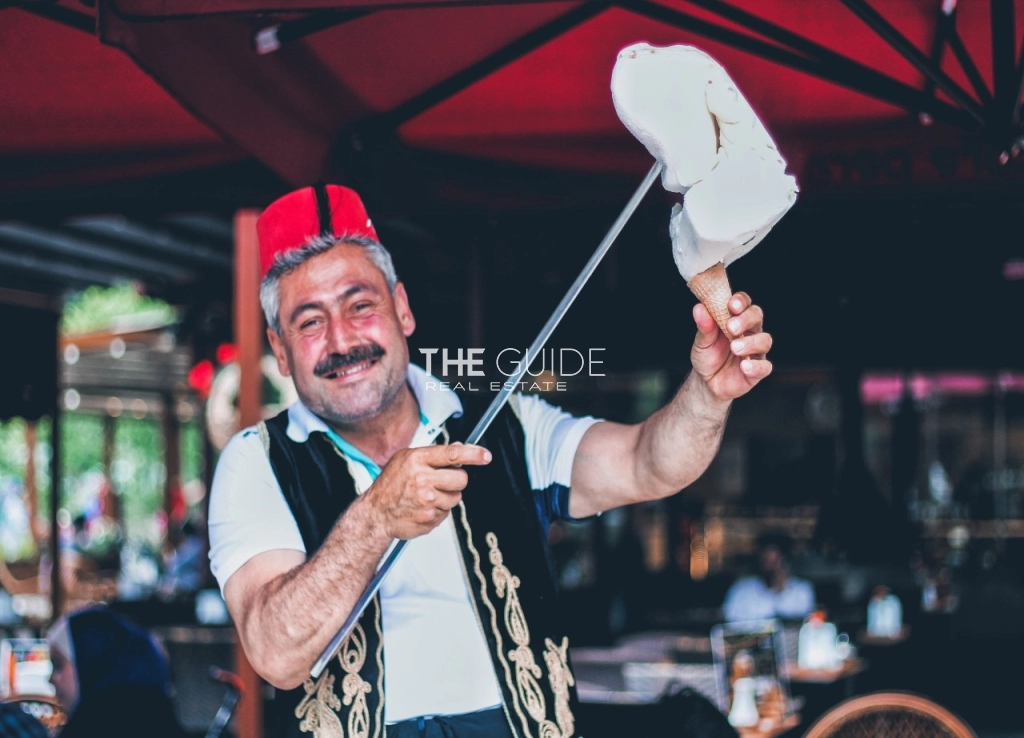7 Turkish Traditions and Beliefs

Exploring
new lands and immersing yourself in different cultures undeniably fills your
heart with excitement, and that sense of wonder often lingers until reality
sets in. The initial thrill, akin to a honeymoon phase, accompanies your
journey, but brace yourself for the inevitable culture shocks. These encounters
might catch you off guard, gradually challenging your perceptions and beliefs
to the very core.
Let's see what culture shocks are waiting
for you while moving to Turkey!
- Food Culture Shock
Throughout the Ottoman era, families adhered to a culinary routine characterized by two hearty meals a day. The first, akin to a brunch, was savored between the early hours of the morning and noon. Following this, a sumptuous feast unfolded during the late afternoon to nighttime, featuring an array of meaty delights coupled with fresh vegetables. Side dishes adorned the table, showcasing a variety of legumes, adding depth to the mealtime experience.
Interestingly, the tradition endures in many households today, with families partaking in two daily meals—breakfast and dinner. Weekday breakfasts are a delightful yet swift affair, marked by simplicity and speed. However, the weekends usher in a different culinary ritual. Breakfast becomes a sacred time for the entire family to convene, indulging in a diverse array of dishes. These weekend breakfasts take on a leisurely pace, a stark contrast to their hurried weekday counterparts, allowing families to relish both the flavors on the table and the warmth of togetherness.
Turkish sweets are a delight for those with
a sweet tooth. While Baklava and Turkish delight are famous worldwide, don't
miss out on Kazandibi's caramelized milk perfection and the unique medley of
grains, fruits, and nuts in Asure, also known as "Noah's Pudding."
Turkish desserts promise a heavenly experience for dessert enthusiasts.
Kazandibi,
meaning "the very bottom of the pan" in Turkish, is a unique chicken
breast pudding. Cooked until it clings to the pan's edges, the overdone pudding
is scraped off, folded into wide strips with the darker side up, creating a
delicious roll. This delicacy gets its name from its origin - the bottom of the
pan, where its rich flavors come to life.
Asure, also known as Noah's Ark pudding,
stands as the world's oldest dessert. This ancient delight combines wholesome
ingredients like dried fruits, lentils, and whole-grain wheat, sweetened with
sugar and fruit juices. Cooked together in one pot, it features a delightful
mix of apricots, raisins, currants, figs, pine nuts, walnuts, hazelnuts,
chickpeas, and navy beans, creating a harmonious and nutritious blend.
- Be careful of the
pronunciations!
Embracing a new language while settling in
a foreign land is undeniably exciting. However, it's crucial to mind certain
pronunciations to avoid unexpected misunderstandings.
In Turkey, "pasta" translates to "cake." Unless you're in the mood for a sweet treat, make sure to use "Makarna" if you desire the authentic savory pasta dish!
In some languages, the distinction between
words lies solely in their vowels. Take, for instance, calling a waiter or
waitress in Turkish. Using "Bakar mısınız," which means "Can you
look?" is equivalent to saying "Excuse me." However, a subtle vowel
change to "Bekar mısınız" turns it into "Are you single?"
This phenomenon extends to words like "ışık" (light) and
"eşek" (donkey), highlighting the importance of precise
pronunciation.
- Water Spilling After
a Passenger Leaves
When you arrive in Turkey and find locals
holding a tiny cup of water to greet you, don't be puzzled. This tradition
involves pouring water after passengers depart, symbolizing a positive wish for
easy and swift travels, akin to the flow of water. While this custom is
predominantly upheld by older generations, it reflects a heartfelt desire for
your safe and speedy journey, rooted in their warm hospitality.
- Writing Names on the
Bride's Wedding Shoes
Here's another intriguing Turkish
tradition! During a wedding, the bride undertakes a significant task: she
writes the names of her unmarried friends and family beneath her wedding shoe.
It might sound peculiar, but it's an exciting moment for those eager to find
love. After the wedding celebration concludes, the bride checks under her foot
to see which names have nearly vanished. If your name is still visible, it
suggests a longer wait for your own wedding. But if the bride can't see your
name or can't read it anymore, it's believed you might be the next one to tie
the knot!
- Evil Eyes
The concept of the evil eye might not translate perfectly, but "Nazar Boncuğu" (pronounced /n/a/z/a/) is the closest term. It refers to a blue glass bead shaped like an eye, widely used in Turkey to ward off negativity. Wearing these evil eye beads is a common practice; people believe it not only adds beauty but also protects them from harmful energies cast by ill-intentioned individuals. These protective charms are often cast towards newborns, children, or loved ones. Whether worn as an accessory or displayed as a decorative item at home, the evil eye serves as a powerful symbol of protection in Turkish culture.
- Inviting a Visitor
to Your Home
Visiting a Turkish home unveils a profound emphasis on hospitality that might surprise newcomers. Turkish people take immense pride in their hospitality, often going above and beyond to ensure guests feel welcomed. Ironically, this generosity can occasionally make visitors feel a tad uncomfortable. Picture yourself at a Turkish friend or family member's house, where they insistently offer you their homemade dishes, even if you're not hungry. They might say, "I'll be deeply disappointed if you don't eat," sometimes even playfully threatening offense if you decline their offerings. It's a beautiful but sometimes overwhelming display of hospitality.
- Greetings in
Turkey
In Turkey, greetings come with a unique
blend of tradition and warmth. Men commonly shake hands firmly while maintaining
eye contact, and close friends might opt for hugs, soft back pats, or cheek
kisses. Political greetings include a temple touch. Women, on initial meetings,
exchange delicate handshakes, but close friends often greet with cheek kisses
and gentle embraces.
When a man greets a woman, it's best to
follow her lead: shake hands if she extends hers, kiss both cheeks if she
offers her cheek. Nodding or respectfully saying "Merhaba" is
suitable if a handshake isn't initiated.
Entering a place, you might hear "Hoş
Geldiniz" (welcome), and "Geçmiş Olsun" conveys a sincere
"Get well soon" wish. In Turkey, a backward tilt of the head
signifies "no," contrary to most cultures where a nod indicates
agreement. The gesture of placing a hand on the heart expresses gratitude and
greetings.
In restaurants, clients request the bill by
mimicking writing in the air with joined index and thumb fingers.
Culture shocks are just new perspectives,
enriching your understanding. Enjoy your time in Turkey, embracing these unique
customs!
Related Articles
Latest Articles
Rate This Article
Recomended Properties
Astonishing Golden Horn Views Apartment for Sale
Nestled advantageously in the Eyup area, Rams Halic presents an authentic Istanbul experience along the iconic Golden...
New Financial City Apartments for Sale in
Discover Sinpas Finans Sehir, a prestigious project meticulously crafted for those who seek a private sanctuary to...
Luxury Homes for Sale in Istanbul Maslak
Hunting for a home that offers marvelous natural views while letting you stay in the heart of...
Luxurious Prime Located Turkey Properties Seba Central
Seba Central extends a contemporary opportunity for discerning buyers, harmonizing refined living quarters with a productive workspace,...
Luxury Homes for Sale in Istanbul Dap
Dap Yeni Levent presents a peaceful life in the financial hub of Istanbul. With its lush green...
Orman Istanbul Turkish citizenship apartments for sale
Orman Istanbul is a pristine and luxurious project in a beautiful district undergoing urban regeneration. Its features...





